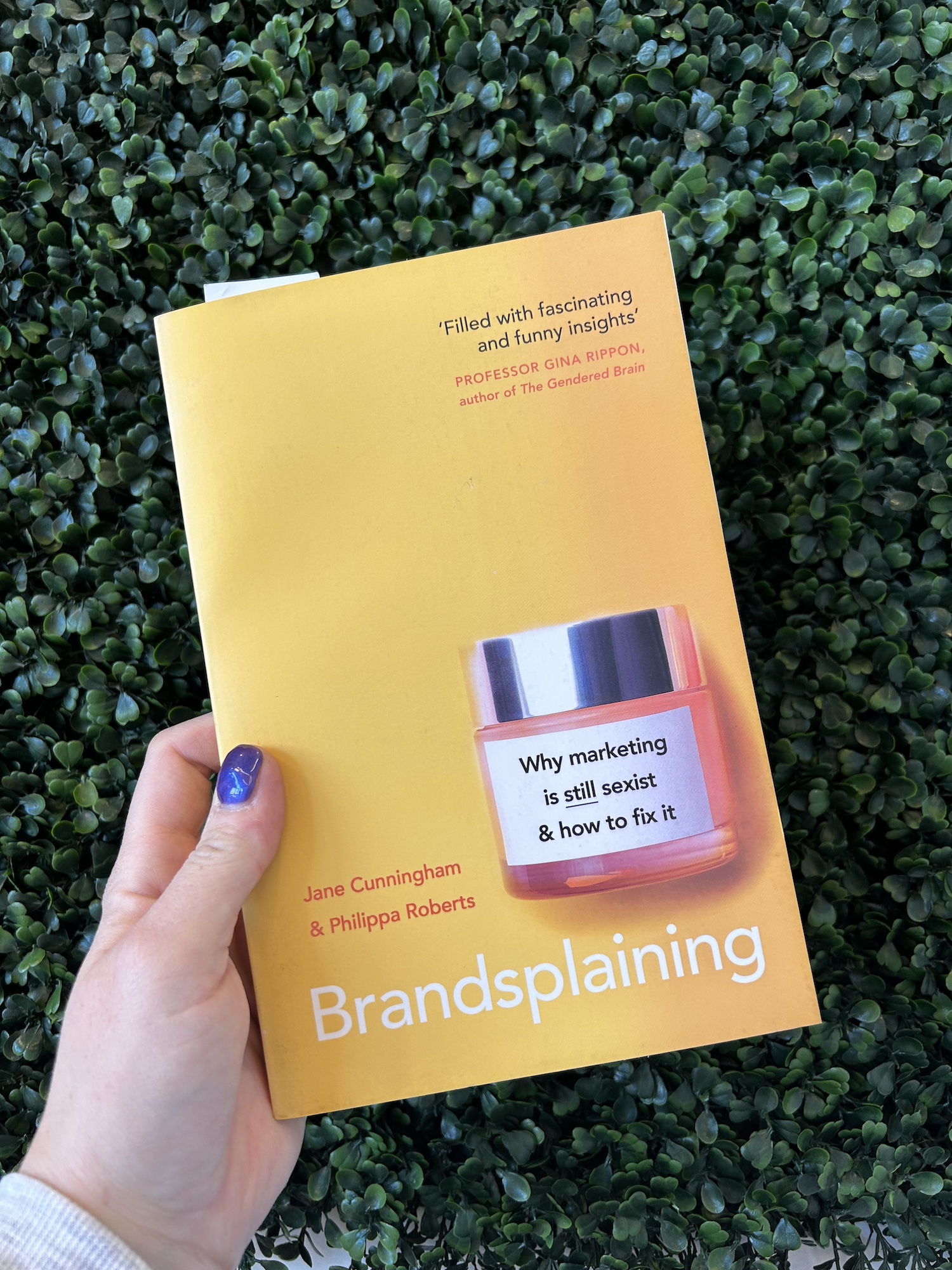
Brandsplaining: Why marketing is still sexist & how to fix it is an important contribution to marketing resources—though it's not only help for marketers. If you’re interested in a crash course in sexism—its history and present—and what to do to help dismantle it, you will benefit from reading this book.
In three parts, authors Jane Cunningham and Philippa Roberts begin by unpacking the history of sexism in marketing—with explanations of its rootedness in society. Drawing on their experiences as marketers and communications consultants, they explore how the birth and evolution of feminist movements impacted the world of marketing and identify the ways things that feel like progress may not be. Finally, they offer tangible steps forward that communicators can use to help shift marketing from half-hearted attempts at being less sexist and instead being truly tuned in to what women want and need.
Filled with empirical evidence from the authors’ research and anecdotes from their work experiences, Brandsplaining paints a clear picture of the significance advertising concepts and language play in the lives of women—and the extremely negative impact it can have when companies fail to listen to women and rely on outdated and lazy sexism tropwa and depictions of womanhood.
Communicators and marketers will find themselves prompted to think about what they can do differently in their work. Folks who are on the receiving end of ads (which also includes communicators and marketers!) will find themselves more aware of what they are listening to/seeing/being sold.
Early on, Cunningham and Roberts state their goal is that brandsplaining “becomes visible and easy to identify, and feels so evidently inappropriate that it can be left in the past where it first began and where it now belongs” (p.6). Through their clear and insightful writing the authors have given communicators the tools to do just that. Bolstered by audiences who will gain a more thorough understanding of the ads they are presented with, together we can all punt sexism to the curb and require that companies engage in respectful advertising that meets the needs women themselves identify, not those caught up in outdated and offensive ideas.
